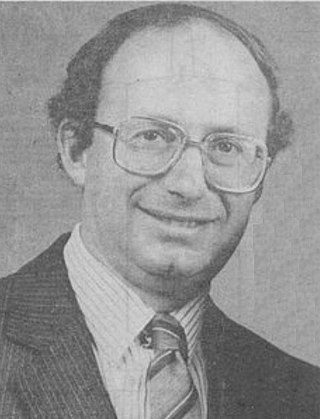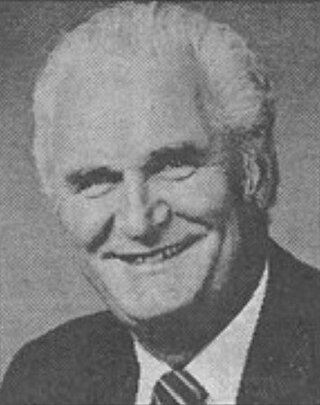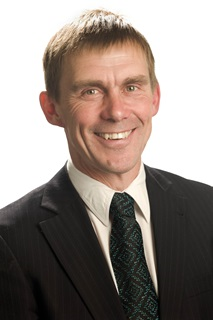
Sir Francis Joseph Kitts was a New Zealand politician. Originally from the South Island, he served in the military and later was a civil servant before entering politics with the Labour Party. He was the Member of Parliament for Wellington Central between 1954 and 1960. He was also the longest-serving Mayor of Wellington, holding the post from 1956 to 1974. He was also a member at various times of several other local bodies and was still an elected official at his death.

John Gerald O’Brien, known as Gerald O'Brien, was a New Zealand politician of the Labour Party.

Ian William Lawrence was an Australian-born New Zealand lawyer, who served as the mayor of Wellington from 1983 to 1986.

Sir Edward Michael Coulson Fowler was a New Zealand architect and author who served as mayor of Wellington from 1974 to 1983.
Thomas Glendwr Gardner "Glen" Evans was a New Zealand politician. He served as the mayor of Lower Hutt from 1986 to 1995.

The 2016 Wellington City mayoral election was part of the New Zealand local elections and was held on 8 October to determine the next Mayor of Wellington. The incumbent was Celia Wade-Brown, who was first elected in the 2010 mayoral election. Wade-Brown did not seek re-election. Her title was pursued by her deputy, Justin Lester, councillors Jo Coughlan, Andy Foster, Helene Ritchie and Nicola Young, former mayor of Porirua City Nick Leggett and independent candidates Keith Johnson and Johnny Overton.
The Wellington Citizens' Association, was a right-leaning local body electoral ticket in Wellington, New Zealand. It was formed in 1911 by merging the selection process of council candidates of several civic interest groups and business lobby groups. Its main ambitions were to continue to control the Wellington City Council, reduce local spending and deny left-leaning Labour Party candidates being elected.

The 1977 Wellington City mayoral election was part of the New Zealand local elections held that same year. In 1977, election were held for the Mayor of Wellington plus other local government positions including eighteen city councillors. The polling was conducted using the standard first-past-the-post electoral method.

The 1950 Wellington City mayoral election was part of the New Zealand local elections held that same year. In 1950, elections were held for the Mayor of Wellington plus other local government positions including fifteen city councillors. The polling was conducted using the standard first-past-the-post electoral method.
Anthony John Brunt is a New Zealand journalist, activist and politician. He was the founder and leader of the environmentalist Values Party in the 1970s.

The 1956 Wellington City mayoral election was part of the New Zealand local elections held that same year. In 1956, elections were held for the Mayor of Wellington plus other local government positions including fifteen city councillors. The polling was conducted using the standard first-past-the-post electoral method.

The 1959 Wellington City mayoral election was part of the New Zealand local elections held that same year. In 1959, elections were held for the Mayor of Wellington plus other local government positions including fifteen city councillors. The polling was conducted using the standard first-past-the-post electoral method.

The 1962 Wellington City mayoral election was part of the New Zealand local elections held that same year. In 1962, elections were held for the Mayor of Wellington plus other local government positions including fifteen city councillors. The polling was conducted using the standard first-past-the-post electoral method.

The 1965 Wellington City mayoral election was part of the New Zealand local elections held that same year. In 1965, elections were held for the Mayor of Wellington plus other local government positions including fifteen city councillors. The polling was conducted using the standard first-past-the-post electoral method.

The 1968 Wellington City mayoral election was part of the New Zealand local elections held that same year. In 1968, elections were held for the Mayor of Wellington plus other local government positions including fifteen city councillors. The polling was conducted using the standard first-past-the-post electoral method.

The 1971 Wellington City mayoral election was part of the New Zealand local elections held that same year. In 1971, elections were held for the Mayor of Wellington plus other local government positions including fifteen city councillors. The polling was conducted using the standard first-past-the-post electoral method.

The 1983 Wellington City mayoral election was part of the New Zealand local elections held that same year. In 1983, elections were held for the Mayor of Wellington plus other local government positions including eighteen city councillors. The polling was conducted using the standard first-past-the-post electoral method.

The 1989 Wellington City mayoral election was part of the New Zealand local elections held that same year. In 1989, elections were held for the Mayor of Wellington plus other local government positions including twenty-one city councillors. The polling was conducted using the standard first-past-the-post electoral method.

The 2019 Wellington City mayoral election was part of the New Zealand local elections and was held on 12 October to determine who would serve as Mayor of Wellington for the next three-year term. It was won by Andy Foster, who unseated the incumbent Justin Lester by 62 votes.
The 2022 Wellington City mayoral election, part of the Wellington local elections in October 2022, determined who would serve as Mayor of the City of Wellington for the next three-year term. It was won by Tory Whanau, a former Green Party parliamentary chief of staff.











